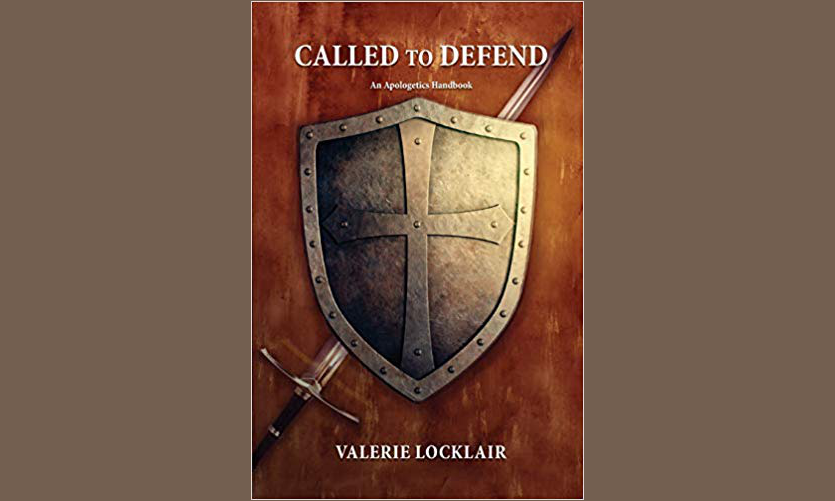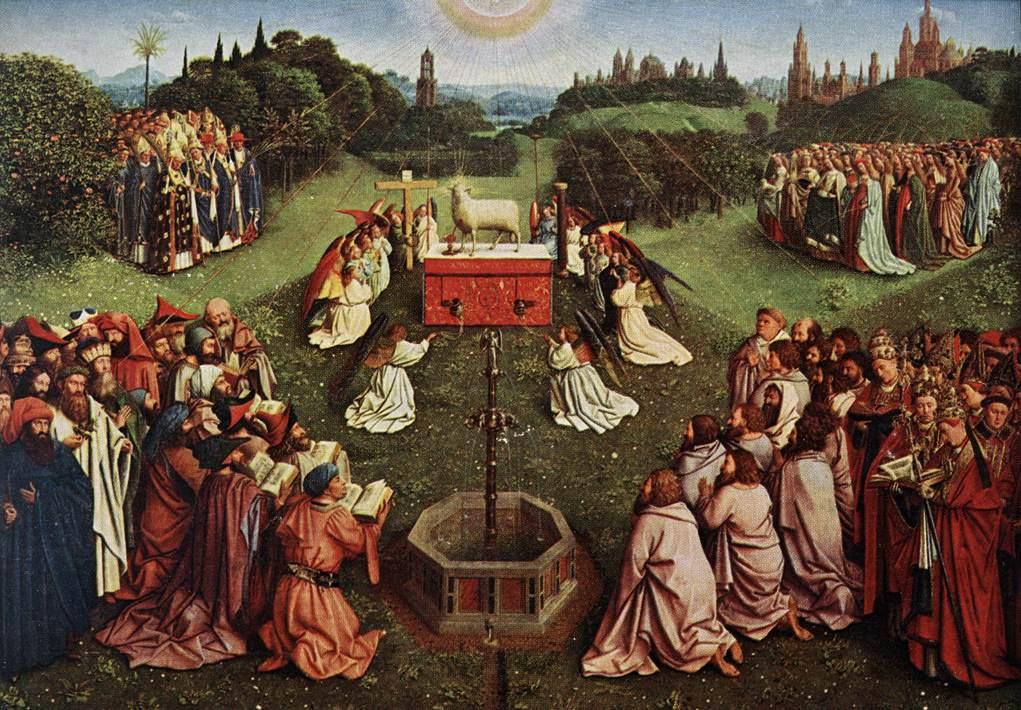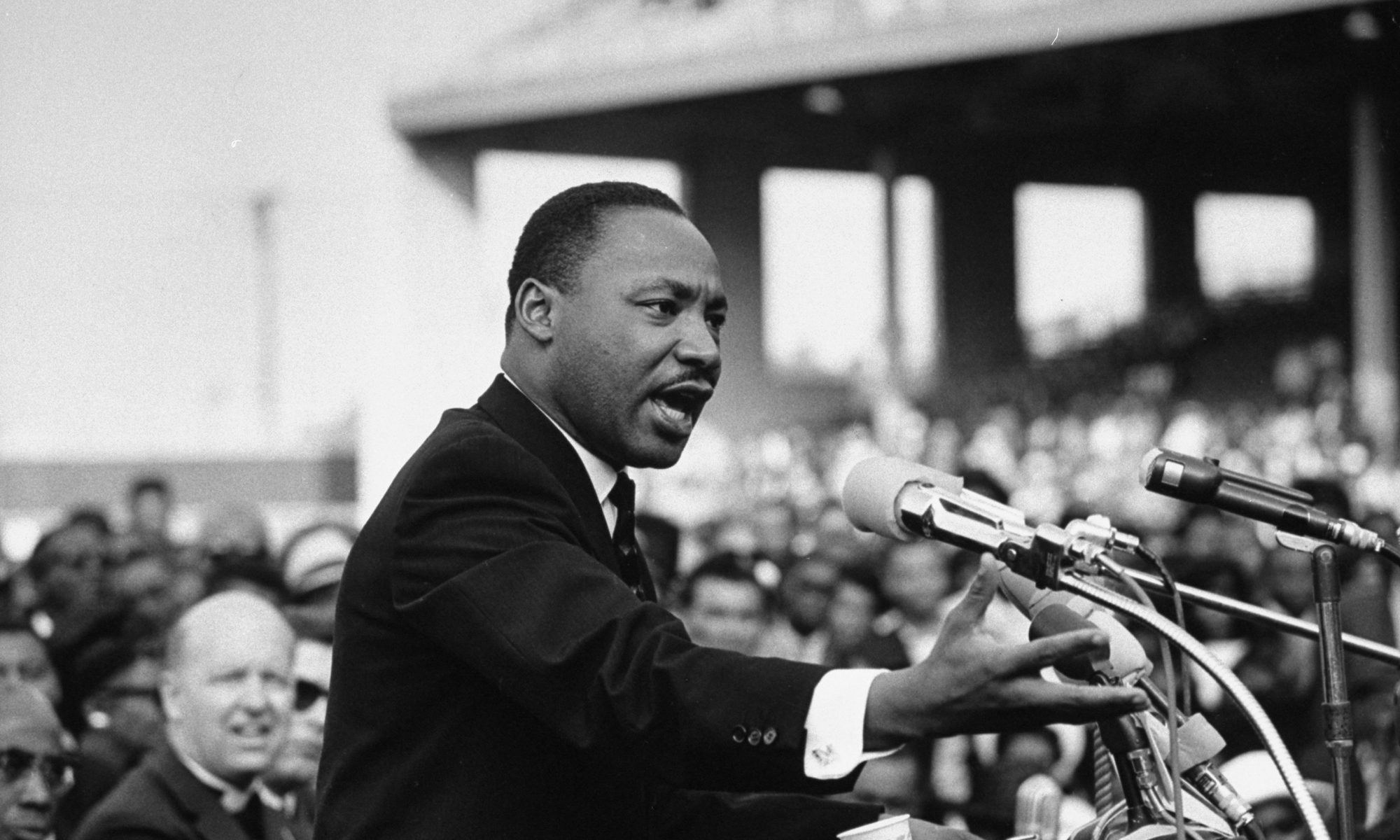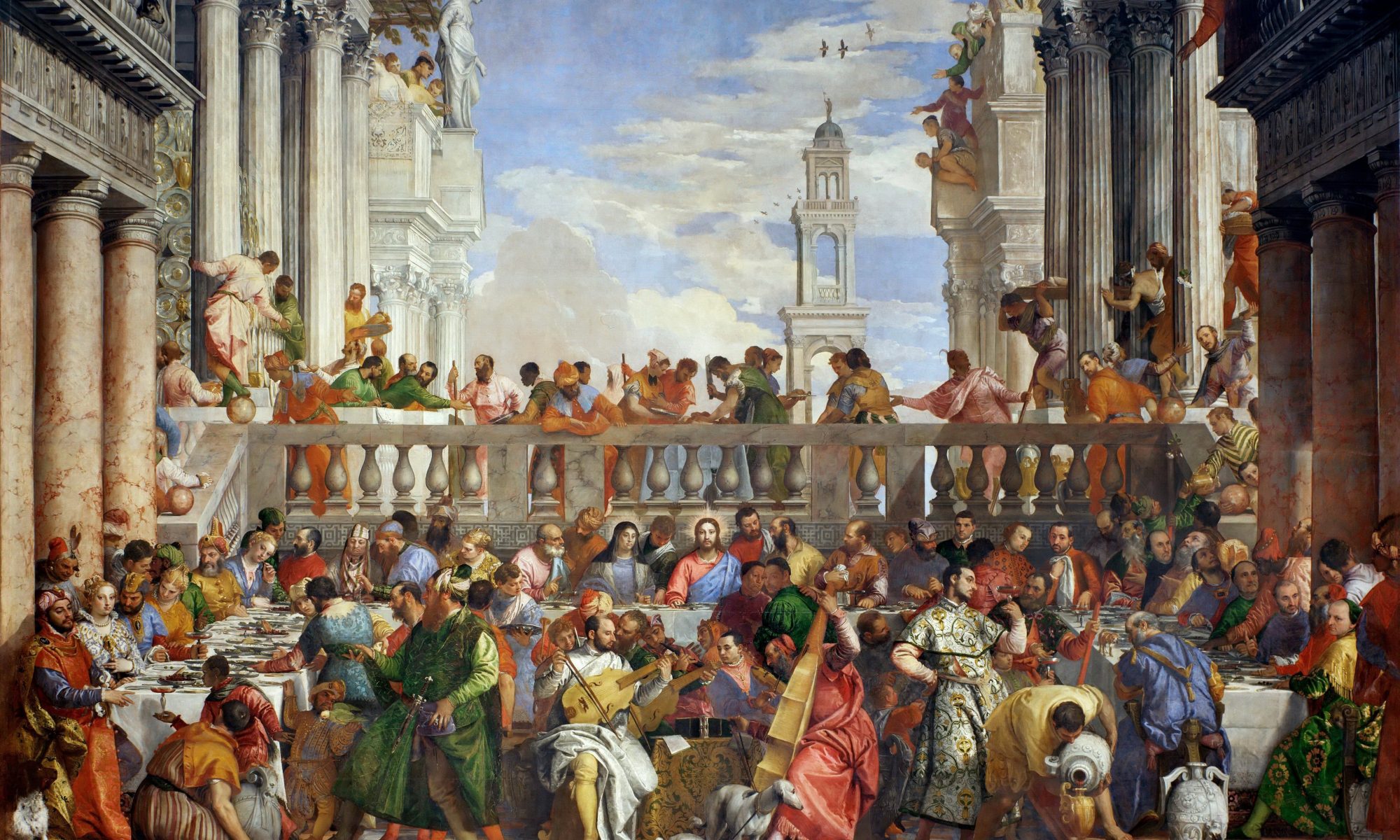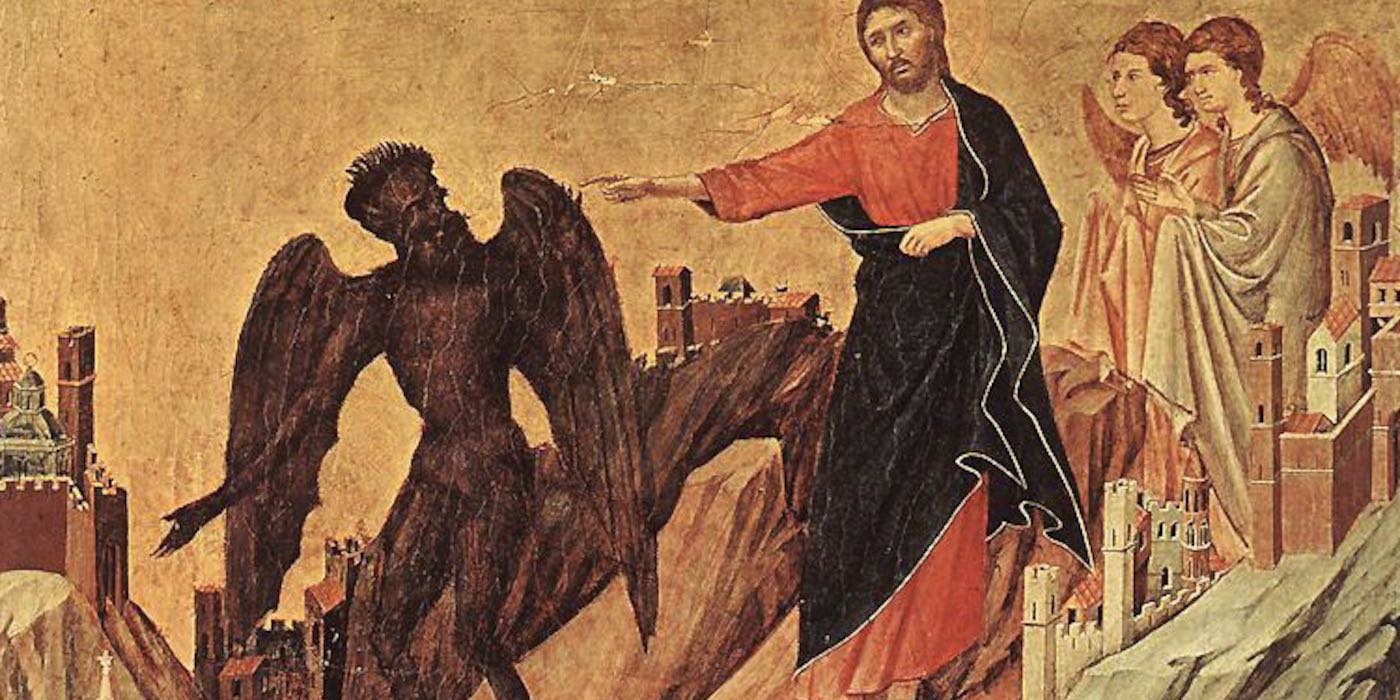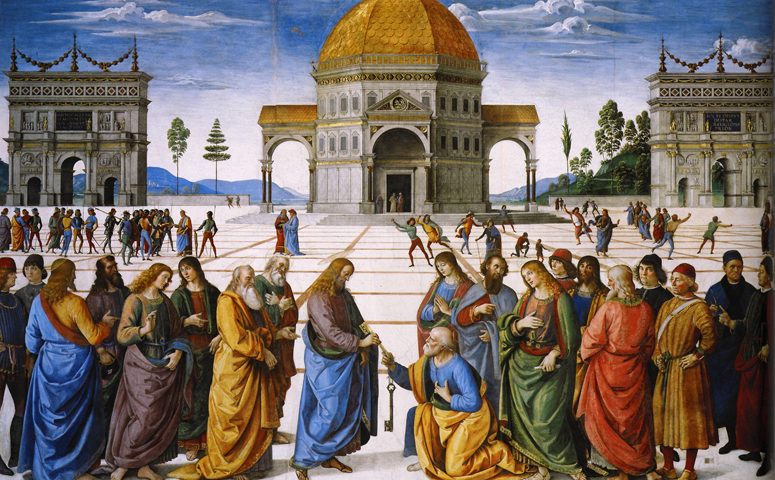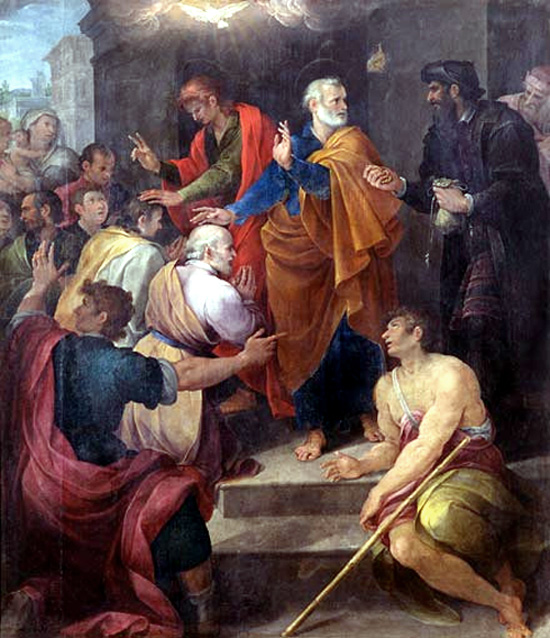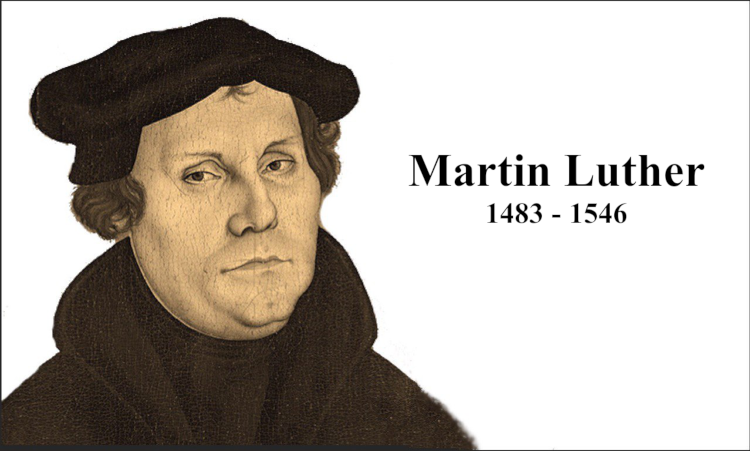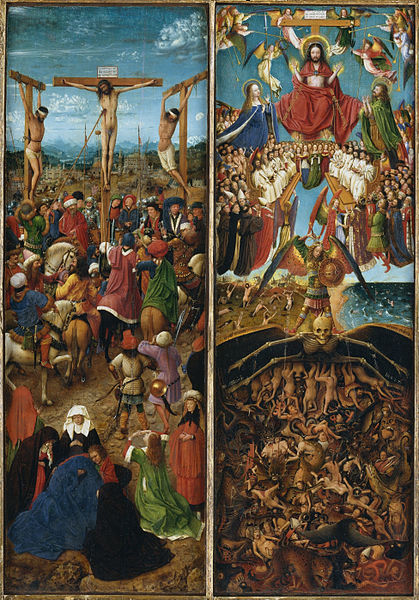The God Who Hides Himself…For Us
The college at which Mike and I teach recently suffered a great loss as a student’s time with us in this life came to an end. This devotion sprang from the conversations, Scripture study, and prayer that resulted from this news. It is being shared here because we know that we have many readers and listeners among the campus family who mourn and pray with us, but not as those without hope. We at LTBF ask that you would keep the student’s family and friends, the college and campus ministry staff, the faculty, and all impacted in your prayers. Christ is risen and Jesus is ever Jesus, He who saves, for us.
Isaiah 45:15
“Truly, you are a God who hides himself, O God of Israel, the Savior.”
God’s omnipresence, that He is in all places, can be both law and gospel. I shudder at the thought of God being present for my every sin. I am terrified at the fact that I have sinned even though I know full well He is present.
God’s omniscience, that He knows all things, can be both law and gospel. It makes me sick to know that God can read my mind. I know the thoughts I’ve had, unintentional and intentional, and they are anything but pretty. How hollow my works must seem if, more than simply seeing their visible appearances, He knows my motivations, which are often much less impressive than appearances would indicate.
Sometimes we like the thought of God’s absence. We can compartmentalize things that way. There are God-things and not-God-things. It helps us avoid paradox, inconsistency, and tension in life and between life and faith. It helps us stay sane. It helps us feel somewhat clean. But God isn’t absent. He hides, but He is never absent.
How does that make you feel? Are you comforted? Is that law or gospel? “Truly, you are a God who hides himself, O God of Israel, the Savior.”
Friends, it is gospel. God hides for us. He wants us to find Him where He reveals Himself, and that is in the gospel, in Word and Sacrament, where He is beyond a doubt there for us with grace and mercy. He wants us to know Him by the crucifix, not by a natural disaster, sickness, or inexplicable tragedy. And yet, even in those things, He is there. He is just hidden.
God knows all things, but He also knows you. He really knows you. He knows you beyond intellectual knowledge. He has descended into the flesh and become you. He knows you and He loves you. In Baptism you have, together with the Church, become His bride. He knows you and nothing He knows keeps Him from being for you grace and mercy. He is present in all places, but in Word and Sacrament, in Christ crucified for sinners, He makes plain that the presence that He wants to define Himself by with you is for you and not against you.
Surely He is a God who hides Himself, but that God who hides is always present, and always present as the crucified and risen One, for us even when everything seems against us, even when it seems for sure that He couldn’t be farther away. Why doesn’t He make His presence known in the natural disaster, in sickness, in the inexplicable tragedy? Because that’s not how He wants us to know Him, even as He promises that none of those things shall separate us from Him.
We live in a fallen world. Sad, terrible, heart-rending, thoroughly fallen things happen here, and we shouldn’t sugarcoat it, theodicize it away, or pretend it isn’t so. Platitudes ring hollow. We live in a fallen world. It is so, and it’s that indisputable, if unacceptable, fact that brought God from heaven to earth, into the mire, and put Him on a cross and brought Him out of His tomb.
Where is God? He is where He promised to be. Find Him, like the thief, on the cross. Find Him, like the frightened women, sprung from the tomb. Find Him, most importantly, in the preaching of the gospel, in Word and Meal. He cannot but be there, because He’s wed Himself to these Means. He cannot but be there for you, because that is the only way He would have you know Him there. In the meanwhile, we take up our crosses, not for salvation, but as those saved through the cross of the One who came to make God known, and to make Him known as compassion, life, and hope, even in the midst of hatred, death, and darkness. “Truly, you are a God who hides himself, O God of Israel, the Savior.”
Wade Johnston
Martin Luther, Martin Luther King, Jr., and Freedom
“It is for freedom that Christ has set us free. Stand firm, then, and do not let yourselves be burdened again by a yoke of slavery” (Galatians 5:1).
There is a connection between Martin Luther King Jr. and Martin Luther, the German reformer, but it is more than the fact that King’s father (and subsequently he) was named after Luther, although that is true. There are many points of comparison, but not all comparisons are particularly helpful. Both men stood against tyranny. They both spoke about freedom. They both spoke truth to power. This is all true, I suppose, but so have many others. I doubt Luther and King would seen eye-to-eye on the Peasants’ Revolt! And, of course, the theology of the 16th Century reformer is not going to entirely match up with a Baptist preacher of the 20th Century. There are theological differences we should not ignore. Although the Luther would have loved this MLK quote, “All labor has dignity”.
Here is the most important connection and it perhaps can serve as a small piece of a plan going forward as we rightly speak against the ridiculousness and immorality of racism: both men are in a long line of the Christian truth and the best of Western civilization. Neither Luther nor King were sectarian. They both drew upon the wealth of Christian theology from the past. They were not saying anything new. They only pointed out the hypocrisy of the day. Luther never wanted nor intended to break from the Roman Catholic Church. He only wanted the church to teach the pure truth of Scripture. King did not set out to topple the white power structure by force. He only wanted Christians to act in love.
For all their differences and the differences between Baptists and Lutherans today, there is a connection to the ancient church and, yes, the best of Western Civilization with its emphasis on human rights, the liberal arts, and freedom.
Luther, painstakingly sometimes, bends over backward to show that his reform was exactly that, a reform. It is as if Luther said, “I am not saying anything that the best of the Church has not already said.” How many times does he quote Augustine? King showed that his reform was in line with the Christian message and the ideals of the Western Civilization which certainly owed a lot to Christianity. He quotes Augustine in his “Letter form the Birmingham Jail”.
Here is the point: we have a shared heritage despite all of our differences and it is based on the value of a human being that is found most profoundly in the love of Christ. This Christianity and the resulting best of Western Civilization are for all of us. What a shame when it has not been promoted this way! This is for everybody and we desire it for everybody.
I am a Lutheran and this is a Lutheran blog, so I will not pretend that Baptist theology and Lutheran theology are the same. That would be insulting to both sides. But we share a lot, too. All this based on Christ. And that starts with salvation in him alone.
Galatians is not about freedom from suffering or injustice. It is about freedom from the accusations of the law because of Christ’s righteousness that replaces the sinners’ unrighteousness. Yet freedom, value, decency, and love flow from this gift. It is for freedom that Christ as set us free. This freedom from sin is paramount. It is a freedom fully enjoyed in heaven. Until then we will fight for freedom here. Why wouldn’t we?
For those of you who suffer injustice of any kind, I’m sorry. I wish it were not so. Nor will I ever be able to fully understand. But, dear Christian, we are one in Christ and both share in his sufferings as we love one another even with heavy crosses on our backs, some heavier than others. We are one in the fact that we need Christ, desperately so. We are also one because he saves us from our own sins and will take us from this veil of tears to a place of bliss. In heaven we will finally enjoy by sight what we have only known here by faith, what he has been telling us all along though his Word, “You are all sons of God through faith in Christ Jesus, for all of you who were baptized into Christ have clothed yourselves with Christ. There is neither Jew nor Greek, slave nor free, male nor female, for you are all one in Christ Jesus. If you belong to Christ, then you are Abraham’s seed, and heirs according to the promise” (Galatians 3:26-29).
Michael Berg
For more content like this, check out the podcast, blog posts, and devotions at www.LetTheBirdFly.com.
You can listen to our latest episode here. You can find our latest installment in the Wingin’ It series on Luther here.
Together with our colleague and a guest on the show, Kerry Kuehn, Mike is offering a practical apologetics course, open to all, in the summer of 2019. You can learn more and register here.
The Wedding at Cana (The Groom for the Groom)
John 2:1-11
Pastors are often asked to preach on the Wedding at Cana for weddings in their parish. It makes sense but not for the reason we might think. It is more than “Isn’t that nice, Jesus went to a wedding and we are at a wedding today.” Or “Jesus blessed the wedding as Cana so he will bless this wedding and marriage.” That’s nice, but perhaps there is something more we can mine from this text.
Did you notice that the groom got credit for Jesus’ miracle? The groom was to be in charge of making sure there was enough food and wine. He might even hire, as in this case, a master of the banquet who made sure the food was served and everything went smoothly. Well, the groom failed. There was not enough wine. Either he was unprepared and bought too little or he was cheap and tried to get by with the least amount of wine he could. Either way he came dangerously close to ruining his bride’s special day and his own family’s reputation. He failed. The groom failed.
Mary saw this coming so she tried to enlist her Son to save the night. She wanted Jesus to save the day. He is reluctant, but he turns water into wine anyway. A miracle. His first. An important event for his disciples and us. He truly is God. But when the wine comes out the master of the banquet gives all credit to the groom. “You have saved the best till last! Most people bring out cheaper wine because the guests won’t know the difference at that point in the night. But you! Oh, what a generous and wonderful man!” The groom gets credit (at first) for the Groom’s generosity. Only Mary, the servants, and the disciples realized what occurred in the moment.
Is this not exactly what happens to us sinners? We who fail are made righteous by Christ. We get credit for his righteousness! And isn’t this a perfect way to start the marriage of two sinners? Here is your righteousness: Christ. And here is how he comes to you: in his Word and Meal. There is a wedding feast every Sunday which looks forward to the Wedding Supper of the Lamb in heaven and it too involves a miracle. You are invited to this wedding banquet. Here you get credit for Jesus’ righteousness. You are forgiven. You are made righteous. Your Groom presents you, his bride, to himself without stain or wrinkle.
So what makes a strong marriage? A lot of things, but it is Christ’s forgiveness for husband and wife and through husband and wife that is essential. So the grooms out there who fail (that’s all of us) and the brides out there who fail (that’s all of them) should come to the Groom who did not. Come to his Meal and his Word. He bailed out the lazy and cheap groom at Cana already and he will bail you out in a far more important way.
Michael Berg
For more content like this, check out the podcast, blog posts, and devotions at www.LetTheBirdFly.com.
You can listen to our latest episode here. You can find our latest installment in the Wingin’ It series on Luther here.
Together with our colleague and a guest on the show, Kerry Kuehn, Mike is offering a practical apologetics course, open to all, in the summer of 2019. You can learn more and register here.
Deliverance from the Devil
Luke 11:14-28
Man, it must have been crazy back then, with all these demons and devils afflicting people, huh? It was really a different day, don’t you think? Thank God it’s not like that anymore, right? But is it so different? No, we don’t have a bunch of exorcisms taking place, but is the devil any less active? Are people any less afflicted? Is hell any less real and its powers any less tyrannical? Read the news. Look around you. Examine yourselves. The devil is still a busy boy. And today’s gospel reminds us that Christ’s work of casting out the devil is as important today as it was then, and he still does it in the same way, with His Word and by His authority as the Son of God, our Savior. Continue reading “Deliverance from the Devil”
Confession of St. Peter
Matthew 16:13-20
This confession will stand. It will stand forever. It is the confession. This is the church’s confession, spoken by Peter. In this confession the church will never perish. Continue reading “Confession of St. Peter”
Salvation Is Not for Sale
Acts 8:18-24
The things of God are not for sale. They are free. Shockingly free. Scandalously free. Continue reading “Salvation Is Not for Sale”
Wingin’ It 86.1: The Life of Luther (Part 8) – Role of Confession
Full of Light, Eyes Aright
Luke 11:33-36
We are Christ’s lamps. He is our light and He has enlightened us. He is our sanctification, first to last. He sanctifies all of us. There is no part of us dark. Our whole body is full of light.
In the ancient world you set a lamp in a prominent place, high, so that it could cast as much light as possible. There was no light switch to hit, no study lamp. The point of a lamp was to give light.
Christ is our light. We are His lamps. Christ who dwells in us shines through us. We are not called to summon some light in ourselves. There is no dark place in us precisely because Christ fills it with light. He casts out all sin. He kills and makes alive, buries and raises. And so we shine, with His light.
Our eye is to be healthy, set on the right thing. In Christ, we have single vision, not double vision or distracted vision. Our eye is set upon Christ, and with our eye so set, we are free. By His light, we see our neighbor, not as a means to an end, not as a way for us to score some sanctification points, as a tool for our religious striving, but as our neighbor, even as Christ Himself. And so our light, Christ, shines through us and for others. We are set high, given perspective, liberated from the schemes of human religion.
When the eye is bad, the body is bad. We know that well. Sin often starts with the eye. We set it on the wrong thing. As with Eve in Eden, evil begins to look good and good evil. The forbidden fruit, whatever it might be, starts to appear pleasing to the eye, good for food. And so we need Christ. We always needs Christ. He casts out that darkness and fills us with light, all of us.
You have that Christ. As we sing, He is the world’s light. He is our light. And He enlightens all of us. He forgives all of us. He sets all of us apart. Shines through all of us. Each day anew. Each day in Him.
“If then your whole body is full of light, having no part dark, it will be wholly bright, as when a lamp with its rays gives you light.” In Christ our whole body is full of light. Apart from Him is darkness.
Christ, give us single vision, eyes aright, full of light.
Wade Johnston
For more content like this, check out the podcast, blog posts, and devotions at www.LetTheBirdFly.com.
You can listen to our latest episode here. You can listen to our Epiphany episode from last year here. You can find our latest installment in the Wingin’ It series on Luther here.
For more writing by Wade, you can find his books here and more blog posts here.
Eternal Life You Have
1 John 5:13
Isn’t it easy to forget it, that we have eternal life? We often don’t feel like. In fact, we sometimes feel like we’re already in hell. We don’t always look like. We don’t need other people to remind us how far we fall short, if we’re honest, but because we fall short in honesty as well, God does send people to remind us. He sends us preachers. And these preachers remind us we fall short, of course, not to leave us in despair, but to give us true hope, to get to the absolution, to proclaim to us an eternal life that we already have in Christ, to put an end to our striving and searching for it in ways and places God has never promised to give it. Continue reading “Eternal Life You Have”

